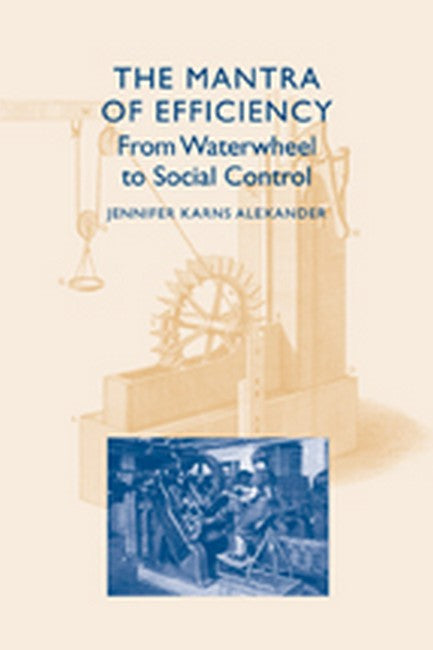Efficiencyassociated with individual discipline, superior management, and increased profits or productivityoften counts as one of the highest virtues in Western culture. But what does it mean, exactly, to be efficient? How did this concept evolve from a means for evaluating simple machines to the mantra of progress and a prerequisite for success? In this provocative and ambitious study, Jennifer Karns Alexander explores the growing power of efficiency in the post-industrial West. Examining the ways the concept has appeared in modern historyfrom a benign measure of the thermal economy of a machine to its widespread application to personal behaviors like chewing habits, spending choices, and movement, to its controversial use as a measure of the business success of American slaveryshe argues that beneath efficiency's seemingly endless variety lies a common theme: the pursuit of mastery through techniques of surveillance, discipline, and control. Six historical case studiestwo from Britain, one each from France and Germany, and two from the United Statesexpertly illustrate the concept's fascinating development and provide context for the meanings of, and uses for, efficiency today and in the future.Reviews''I find this to be the finest study I have ever read and likely will ever read on the evolution of 'efficiency' as an intellectual concept and, simultaneously, on its many applications over time. Alexander's book has remarkable depth, detail, coverage, and insight. Her work is most impressive in its tracing of efficiency from its origins as an obscure philosophical concept through the present, as a popular social and personal ideal.''Howard Segal, University of Maine, author of

